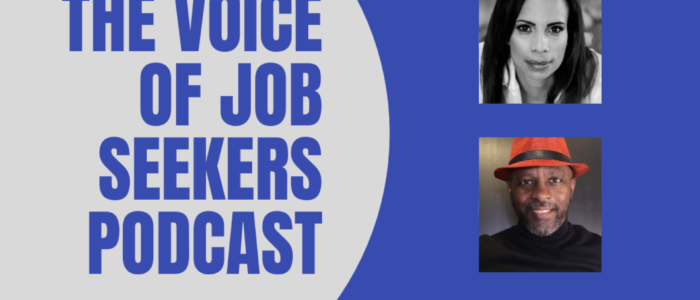
The Voice of Job Seekers – Unemployed, Underemployed, Unappreciated Job Seekers Welcomed!
For the past few days & even weeks – you have spent tons of time & effort to prepare that eye-catching cover letter and resume. You even connected with your old college mate to introduce you to the right recruiter in the company.
So far, you have done all the right things. And you have successfully managed to get that Job Interview. Congratulations!!
It’s not easy to get an interview. According to Workopolis, only 2% of the candidates get interviews. You have beaten hundreds of other applicants who wants that same job. And yet, you are the chosen one. I am sure you are beaming with pride and happiness. You nailed it.
However, this is the part where most candidates miss the mark.
I am sure you have heard the phrases such as “First Impressions Matter” or “You only get one chance to make a good first impression.”
And yet –
.
And this is frustrating for both the candidate and the hiring manager.
I have been on both sides of the table. I have interviewed candidates on behalf of clients. I have also interviewed candidates to work in my company.
You would be surprised by how many candidates prepare. From first-hand experience, I would say only 2 out of 10 prepare for an interview.
Every time I see a candidate who comes in thoroughly prepared, I just want to jump across the table and hug him/her. However, this is rare.
OK!! Enough about the problem. What is the solution?
What can you do? How can you nail that interview? How can you make a lasting impression with the Hiring Manager?
It is an obviously simple thing. It’s called Preparation.
I know you were looking for the magic pill. I am sorry I can’t give you one. There is only one way. And that is to prepare for the job interview.
Peak Performance coach and Self-Help Author Brian Tracy often quotes “Proper Prior Planning prevents poor performance”.
Preparation will help you stand out amongst other candidates.
However, I think the main benefit of preparing is that it will boost your confidence. Most people lack confidence because they lack information. The more knowledgeable you are and the more you prepare – the more confident you become and the more you increase your chances of success.
Here are some ideas that will help you prepare for your upcoming interview.
1. Prepare about YOURSELF
I know this sounds silly. Why would you want to prepare yourself? You already know enough about yourself.
Take a moment – a day or two before the interview to sit down and reflect.
Think on paper. Write down your past accomplishments.
What are some of the things you have accomplished in your career?
– Was it helping your company implement a complex ERP system?
– Was it introducing Agile Programming Methodology to the company?
– Was it saving $100000 to the Marketing Budget?
– Was it opening a brand new Branch in a new city?
. And that boosts your confidence. And confidence will shine through in your job interview.
Anytime, I have done this – I get very excited. Instead of feeling nervous about a job interview (which is natural), I am excited to go and share my story. I am enthusiastic about the interview.
Try this today. I guarantee you will change your mental and emotional state.
2. Know your RESUME
Review your resume in detail. Go over it with a fine-tooth comb. This might be a very good time to check for any errors.
If you have customized your resume for that particular job, then make sure you know your resume inside and out.
Since most hiring managers will use your resume as a guide during the actual interview – you don’t want to appear clueless when they ask you a question.
In almost all the interviews I have attended – in each & every case, the hiring manager had a copy of my resume. And they asked me multiple questions all from my resume.
In one case, I had accidentally sent the wrong resume. Oops!!
Luckily I had a few copies of my updated resume, and I shared that with them. I was able to save a disastrous situation.
Know all the details in your resume. Know the numbers, the results, and what you exactly did for each role. And sometimes, it’s not enough just to know the figures.
But also some detailed situations and stories….
3. Prepare STORIES
Whether they ask standard interview questions or not (more about this in a bit) – in most cases, hiring managers will ask you situational questions.
Hiring managers will ask you questions about your previous experiences. This helps them to gauge your thought process, work ethic, team working skills, etc. They want to know how you react in a particular situation.
This is where stories come in handy.
I suggest a simple framework when I am asked situational questions. I discuss my stories is this format
a) What happened?
b) What did I do?
c) What was the result?
State the situation and keep it brief. For example “We were being downsized, and I had to take on extra projects”.
Then spend most of the time on the What did I do part. Give them details. Tell them how you improved your productivity in spite of additional work responsibilities. What are some of the things you did? What did you have to learn? What did you have to sacrifice?,etc.etc.
And finally but most importantly, offer concrete results because of YOUR actions.
– Did your previous boss improve productivity in his team? If so, how much?
– Did your previous employer save lots of money because of your efforts? If so, how much.
– Did your new branch exceed sales results? If so, how much?
Your stories should be crafted in such a way that it makes the Hiring Manager wanting to know more. They should be excited to hear more.
A keyword of caution – don’t embellish or exaggerate or outright lie. I never recommend that. Most Hiring Managers can see through the B.S. Keep it real.
If you have done your homework as in step 1 (Prepare about YOURSELF), you should be able to come up with great stories to share.
4. Prepare your PORTFOLIO.
I strongly recommend you prepare a Portfolio before walking into any interview.
The goal here is to walk into an interview with lots of ammunition. I always recommend that you use a 3 or 4 part binder (you can obtain one from Staples).
I have personally used these folders, and most Hiring Managers were impressed that I went the extra mile. In some cases, we spent the first few minutes of the interview just talking about the Portfolio.
In each binder, insert your resume, cover letter, testimonials, recommendations, and other supporting documents.
Remember, you are selling yourself in an interview. And the more polished, professional and thoughtful you look – the better impression you make.
This is also an effective psychological hack. Usually, the Hiring Managers are ready to start grilling you as soon as you walk into the interview room. They either have a list of questions to ask or a framework to follow. When you walk in and hand them a physical object (your portfolio), it breaks their pattern. They are instinctively curious, and they want to know more. Besides, you have immediately differentiated yourself from your competition.
And make sure to bring 3 to 4 copies of each. I implore you to do this. I have walked into situations where their photocopier was not working, and they did not have a resume to interviewing me. Luckily, I had a few copies – which I handed to them, and the interview went smoothly.
In one case, I was attending a 5-part interview series (meaning I had to meet five people separately over the course of few months). It was a frustrating process. I met one of the hiring managers. As he was walking me out, he noticed that the other Hiring Manager was also in the office and was free. He immediately scheduled me for a meeting with the other manager. As I had my portfolio with me, I was able to begin the interview right away. This saves me another trip to their office. It also showed them that I was very diligent and well-prepared.
5. Prepare STANDARD INTERVIEW questions
Today, many companies don’t ask the standard interview questions anymore. However, don’t take any chances. If you have never met them before, don’t make any assumptions on the type of questions they might ask.
It is always a good idea to prepare your answers for the standard interview questions.
Prepare responses to the standard interview questions, such as:
1. Tell me a bit about yourself
2. What are your strengths?
3. What are your weaknesses?
4. Where do you want to be five years from now?
I know they are lame. And I hate them too. I know they are not personable questions.
However, as mentioned before, you only have one chance to nail that interview. So go in well-prepared.
And remember, always to personalize the answers. For each of the above standard interview questions – you can easily find canned responses on the internet. Don’t take the easy path. Spend some time preparing these questions in your words, and your experience.
6. Prepare for their INDUSTRY
You might be brand spanking new to the industry that you are applying for. But that does not mean you have to go to an interview clueless.
Stay abreast. Spend some time researching the industry.
For example, you are being interviewed for a Junior Engineer position for an Automobile manufacturer. Learn about the top 5 trends in the industry. It might be self-driving cars, electric cars, government subsidies for clean energy, etc.
A simple search on Google News will yield you lots of information on your prospective industry.
Yes, of course, this will make you come across as smart and a knowledgeable candidate. That’s the end benefit.
However, the most important benefit is that you are doing this for yourself. The more you research a particular industry, the more excited you become. The more excited you become – the more you want to build a career in that industry.
Most hiring managers are looking for candidates who are in for the long haul. They want to see excitement and enthusiasm in the candidates. If you don’t prepare for what’s happening in the industry- they will automatically assume that you are there just to get any job. And as a result, will not take you seriously.
For example, a few years ago I wanted to work for a major software company. I was invited for an in-person interview. I spent days researching and learning almost everything about the industry. The more I learned, the more I wanted to work in the Software Industry. My heart was set on getting a job and staying in that industry for the long haul.
By the way, I did not get that particular job. However, I still work in that industry today, and I love it.
And guess what, whenever I have interviewed. My excitement and in-depth knowledge about the industry rubs off on the interviewer. And in most cases, they invite me for the next step.
7. Prepare about the COMPANY
This is extremely frustrating for Hiring Managers. Some candidates they meet who do not know anything about the company is baffling. It annoys them.
Learn about the company. Their story, what they create, who their customers are, who their competition is, and where they fit into the industry.
You can find all this information usually on their website. Today most companies have a Facebook Page and a YouTube Page. Watch their videos, news releases, etc… You will learn a lot.
This will also help you learn about the culture of the company.
People spend enormous amounts of time researching their next vacation. However, they spend minimal amounts of time learning about the company they might work for. On average, you will spend most of your waking hours working. Might as well, learn about the place you are going to be working for.
Here is a specific thing I recommend you learn about the company, and that is their Core Values. Most companies today share some values. For example, a commitment to excellence. Or a company that puts people first (example Virgin Group of companies), or a company that is Philanthropic (example Salesforce).
If you are meeting with an Executive or someone in Leadership function, make sure to bring this up during the interview. And you will see that they beam with pride when they talk about their core values.
Know in advance what that employer or company stands for.
Recently, we interviewed a candidate who was applying for a position in our team. We asked him a simple question “What do you know about us?”
He was scrambling to give us an answer. He told us that we had 20000 people (which was wrong). And he told us that we service and sell something that we never do.
And what do you think happened? Do you think he got the job? Exactly!!
8. Prepare about the HIRING MANAGER
Thanks to a Google Search, you can learn almost anything about anyone today.
LinkedIn is another great information source. Most professionals today are on LinkedIn (about 430 million+). Most LinkedIn users voluntarily share their work history, projects, and accomplishments. They tell us about where they worked, how long they are at the current job, etc.
During the interview, make sure you use the opportunity to ask them personal work-related questions (not their families or hobbies). When you ask them personal questions – it helps build a connection. And you can uncover a lot of things about the work culture by learning about why they are still there.
If the Hiring Manager says that she has been there for seven years and started off as a mailroom clerk, and today she is a VP. That tells you that she takes a lot of pride in working there. It also tells you that the company promotes on merit & loyalty.
If the Hiring Manager, says that he works there because of the people and how he looks forward to meeting his colleagues daily. That tells you that this company values people, and they are usually happy to work there.
At the end of the day, the Hiring Manager is also another human being. Yes, he/she is trying to fill a position, but they also have likes, dislikes, etc.
Build a connection.
9. Prepare QUESTIONS for them
Usually, at the end of the interview, you will be given an opportunity to ask questions.
When a candidate does not have any questions, it raises a RED flag!
For a Hiring Manager, it shows that the candidate either does not care enough about the job, or the candidate will accept any job.
Remember – a job interview is a two-way street. You are learning as much about the company as they are learning about you.
Don’t you want to know what the job entails? Don’t you want to know whether this is the place that you want to work at? Don’t you want to know what type of people work there?
Sometimes, candidates don’t ask questions because they are nervous. Or sometimes, they cannot think on the fly. Interviews are usually high-pressure situations, and sometimes our brain goes blank.
I recommend you go into the interview with a list of questions. Write them down on a piece of paper or your notebook.
Make the questions personalized, however, feel free to use the following questions as a guideline.
– Tell me what a day-to-day looks like for this role?
– What are your expectations of me in the first 30 days, 90 days, one year,etc.?
– What do you think is the impact to the company with the current changes in dot, dot, dot?
– What does the training program look like?
– What does your ideal candidate look like?
Asking such questions changes the dynamics of the interview. You are no longer in the hot seat. The Hiring Manager is forced to answer these questions.It shows to them that you are diligent, and you want to learn as much as possible about the role. And trust me, it does help you stand out!!
There you go – now you have the framework to prepare for your next job interview. As mentioned multiple times in the article, you only have one shot. So make it count.
When you follow some of these tips, I guarantee that your stress levels & nervousness will be reduced. You will stand out amongst the other final candidates. You will go into the interview more confident. You will make a lasting impression. And you will be ready to answer any questions that come your way.
What are some other things that you do to prepare for a job interview?


